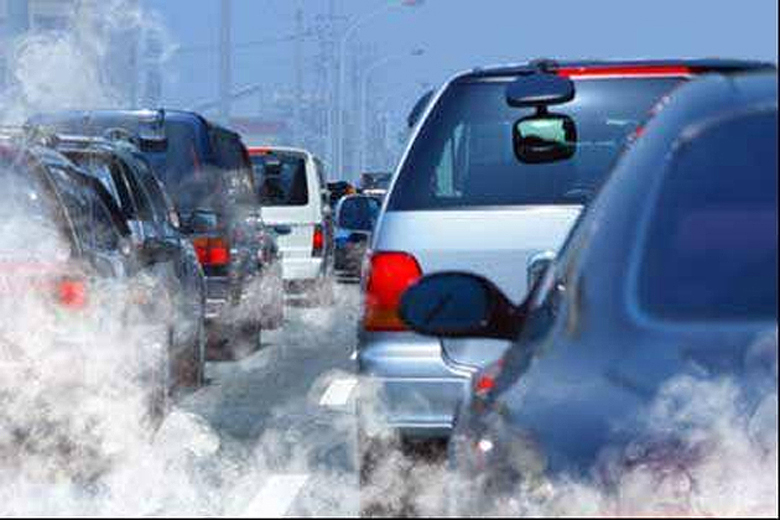
What made diesel exciting. The Price! Not anymore. The stupendous rise in its price and the narrowing gap with arch rival petrol has taken the sheen off this once favourite automotive fuel, crashing the sales across cars, vans and SUV's in Asia's second largest auto market.
Grappling with the change, many automakers have virtually skewed their production to meet this unexpected scenario demand that has halved to mere 30% from the high of 62% in the past few years. For hatchbacks and sedans it's as low as 22%.
So what’s the future?
The sales will come crashing down further as we migrate to stricter emission norms in 2020. The change in technology for the BSVI norms will make the diesel vehicles much pricier to their petrol siblings and possibly unattractive for the value conscious Indian customer.
So, the percentage of diesel vehicles will clamp down to 20% in the long term, something it was a decade back, when fuel prices in India will controlled by the government and customers preferred the cleaner petrol.
Sales of new models is an eye opener. For Hyundai Create a true-blood compact SUV more than 30% customers opt for petrol and even the recently launched new Ford Freestyle crossover has seen petrol take a lead of 65% in the total sales.
Honda Car India, a traditional petrolhead with the strongest portfolio of the such vehicles in the Indian market, is grasping to roll out the petrol variants for its Amaze compact sedan after its much ambitious diesel technology created especially for India is waning out. A sharp contrast to 2013, when the first generation of Amaze was launched. Back then, 80 per cent of the demand was for diesel variants and the company had to stretch operations to ramp up production of diesel variant.
"The shift from diesel is very much evident. Customers are now moving back to petrol which is considered a much cleaner fuel and traditionally has been a preferred one in the Indian market. So, we predict going ahead its the petrol cars that will make a huge headway at the cost of dirty diesel," says a senior automotive consultant.
Another bane for diesel is the perception and the spate of bans and taxes levied on the fuel that forced customer's to go against it. The diesel engines have been at the receiving end since the bans by Supreme Court in the National Capital Region of Delhi (engines in excess of 2000cc) and the policy-makers like the National Green Tribunal restricting vehicle usage to 10-years killing its demand across various urban markets. Data sourced from the apex body of the automobile industry, Society of Automobile Manufacturers' or Siam shows that the ratio of diesel variants in new car sales has almost halved to 22 per cent in April-June quarter from 42 per cent in FY14.
Take a cue on this. The cost of owning a diesel will be ridiculously high once the new norms kick on next year. Industry experts say that the gap between the price of a diesel and petrol car will turn wider when the country moves to Bharat Stage VI emission norms from April 2020.
A senior Maruti Suzuki executive opined that the the difference today between a diesel and petrol car is about Rs-1,00,000, but it will go up to over Rs-2,00,000 when vehicles become BSVI compliant. "Who will bye diesel. The difference in price will be a major distraction. Once that happens more buyers will start looking at petrol as a worthy option. It will be cheaper and far more affordable to own petrol over diesel. So, the future is quite clear where diesel will lose lustre gradually," the executive said preferring anonymity.
The only saving grace for diesel could be the growing market shift from sedans towards the SUV coming in different sizes from compact to full scale. These large vehicles perform optimally on diesel, which is more ‘Torque-y’ thus delivering instant pickup. But the scaling price difference might turn the tide in favour to petrol as many SUV's like Toyota Fortuner and Hyundai Creta already draw sizeable customers to this fuel.
The verdict seems in favour of petrol, and manufactures are already gearing for the change and avoid sudden surprise which are not uncommon in India.
Some manufacturers have moved to petrol only strategy. Japanese car maker Toyota Yaris sedan launched in May this year, does not offer a diesel variant. Its top executive says the they have been monitoring the Indian market and in the past three years, there has been a larger rise in customer sales of petrol variants. Its
Corolla sedan now gets as much as 89% sales from petrol variants up from 75% few years ago. "Typically customers like a diesel engine on bigger vehicles like SUV, MPV as higher torque is required to enjoy and handle bigger cars," a senior executive said.
Diesel despite its multiple usage has slowed in demand while petrol usage has surged in India. According to petroleum ministry data, petrol grew over 10% in FY18 and by over 8% in the April-June period. By comparison, diesel consumption grew by 6.6% last year and has grown by 3.4% in the last quarter. Unlike petrol, diesel consumption is not just limited to vehicles. Sectors like railways, agriculture, industry consume diesel while 44% of national diesel consumption came from heavy and light commercial vehicles in India.


